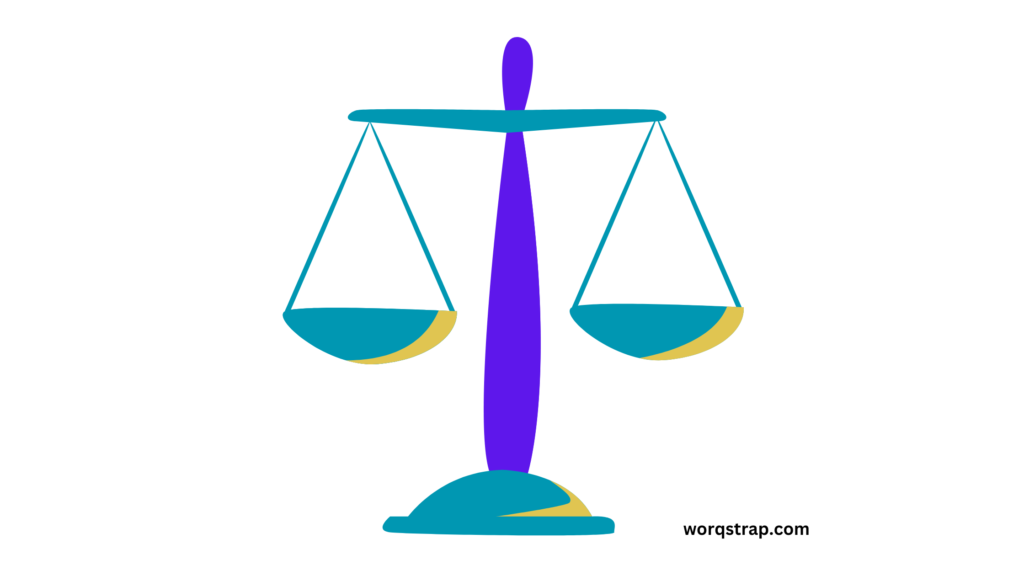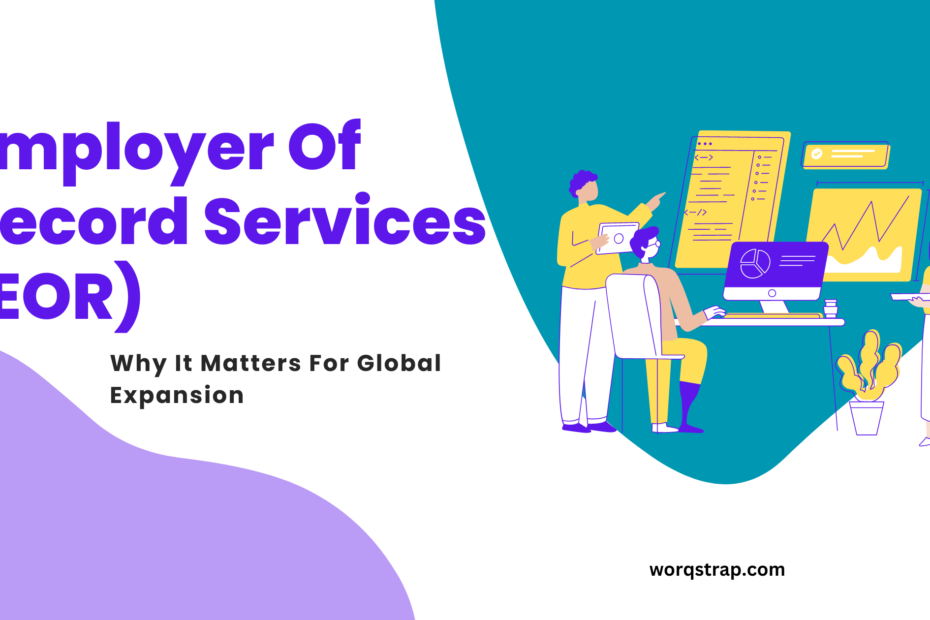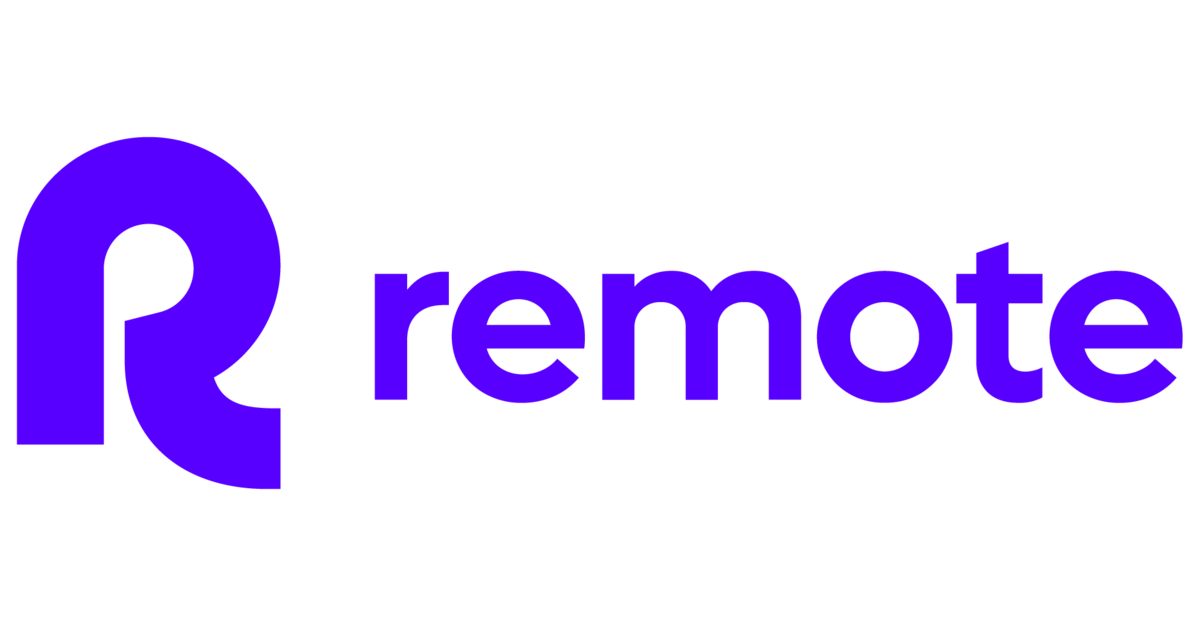Let’s get straight to the point.
In this blog post, I’ll like to answer some of the most important questions about Employer of Record (EOR) services for business and startups looking to hire remote talent.
Here’s what I’ll be covering:
1. What is an Employer of Record (EOR)?
2. How Does an Employer of Record (EOR) service work?
3. Why is Employer of Record (EOR) Important?
4. How Does One Choose an Employer of Record service for their business?
5. Does an EOR service provide benefits to employees?
6. Is an EOR service suitable for all types of businesses?
Familiar scenario: you’ve got a brilliant idea and an innovative product. And now, you’re searching for an enthusiastic team ready to conquer the world.
But there’s a catch – you don’t want to look for talent locally, because you know you’ll be limited in terms of how many world-class talent you’ll get. So your bet is to hire the best from around the world.
This will leave you with a team of talent scattered across different time zones and countries. While the thought of this sounds interesting and great, navigating the intricacies of international employment is no walk in the park.
Once you start the journey, there’s no going back. After all, who doesn’t like to have the greatest of talent sourced from around the world.
But be ready to deal with a couple of headaches.
- The paperwork alone can feel like a never-ending maze
- The legal jargon is enough to give anyone a headache
- And compliance becomes a haunting buzzword that keeps you up at night.
This is where Employer of Record (EOR) services come into the picture.
Today, I want to take you on journey to understand what these services are, what they do, and how you can use them to work with talent, regardless of their location.
What is an Employer of Record (EOR)?
An Employer of Record (EOR) is a third-party entity that takes on the responsibility of being the legal employer of a company’s employees. This means that the EOR takes care of all the administrative tasks associated with having employees, such as payroll, taxes, benefits, and compliance with labor laws.
When a company partners with an EOR, the EOR becomes the employer on record for the company’s employees, but the employees still work for the original company. This arrangement allows companies to outsource the administrative burden of managing employees, while still retaining control over their day-to-day work.
EORs are particularly useful for companies that want to expand their operations into new markets or countries, but don’t want to set up a legal entity in each location.
By partnering with an EOR, companies can hire employees in different locations without having to worry about the legal and administrative requirements of setting up a new entity in each location.
Overall, an EOR provides companies with a cost-effective and efficient way to manage their employees, while ensuring compliance with all applicable laws and regulations.
How does an Employer of Record (EOR) service work?
When you (as a company) partners with an EOR service, the EOR becomes the official employer of your remote workers in the specific country that you’re hiring from.
Your company will continue to manage the day-to-day tasks and work assignments of your remote employees, while the EOR takes care of all employment-related administrative duties and ensures compliance with local laws.
Read: Best EOR for Remote Teams
This is a great video from Running Remote talking about Employer of Record (EOR) services
Feeling confused still? Let me break it down here
- Company A (Client): The company that requires the services of workers, either in their home country or abroad.
- Workers: The individuals who will be providing their services to Company A. They can be independent contractors or employees.
- Employer of Record (EOR): The third-party organization that acts as the legal employer for the workers. The EOR takes care of payroll, taxes, benefits, HR, and other employment-related functions.
- Service Agreement: Company A enters into a service agreement with the Employer of Record, outlining the terms of engagement, responsibilities, and services to be provided.
- Worker Agreement: Each worker signs an agreement with the Employer of Record, which outlines their employment terms and conditions, even though they may be working for Company A.
- Work Performance: Workers perform their tasks or services for Company A under the guidance and direction of Company A.
- Timesheets and Reporting: Workers submit their timesheets or reports to the Employer of Record, detailing the work hours and completed tasks.
- Payment: Company A pays the Employer of Record for the services provided by the workers.
- Employer of Record’s Responsibilities:
- Payroll Processing: The EOR calculates and processes payroll for the workers, including salary, taxes, and other deductions.
- Tax Compliance: The EOR handles all tax-related matters, including withholding taxes and filing returns.
- Benefits Administration: The EOR may offer benefits packages and administer them on behalf of the workers.
- HR Support: The EOR provides HR services, including onboarding, offboarding, and handling employee-related issues.
- Legal Compliance: The EOR ensures that all employment regulations and laws are followed in the workers’ country.
- Workers’ Benefits: Workers receive their salaries and benefits from the Employer of Record, as per their worker agreement.
- EOR Fees: The Employer of Record charges Company A a fee for its services, which is usually a percentage of the workers’ compensation.
Why is Employer of Record (EOR) Important?
Employer of Record services provides lots of benefits, not just for businesses, but also for employees. Here’s what each party get in an EOR agreement.
Benefits for Companies
Employer of Record (EOR) services are becoming increasingly popular among companies of all sizes. This is because EORs take on the responsibilities of being the employer of record for the employees of a company. This means that the EOR is responsible for handling payroll, taxes, benefits, and compliance issues.
Saves Time and Money
One of the main benefits of using an EOR is that it can save companies time and money. By outsourcing these responsibilities to an EOR, companies can focus on their core business functions rather than administrative tasks. Additionally, EORs have expertise in employment law and regulations, which can help companies avoid costly legal issues.
Helps with global expansion
Another benefit of using an EOR is that it can help companies expand into new markets. EORs have a presence in multiple countries, which can make it easier for companies to hire employees in those locations. This can be especially beneficial for companies that are looking to expand internationally but may not have the resources to set up their own operations in a new country.
Benefits for Employees
EORs also provide benefits for employees.
Employee Benefits Advantage
One of the main benefits is that EORs can offer a wider range of benefits than a company may be able to offer on its own. This is because EORs have the ability to pool resources and negotiate better rates for benefits such as health insurance, retirement plans, and other perks.
Job Security
Another benefit of using an EOR is that it can provide employees with greater job security. EORs are responsible for handling payroll and compliance issues, which means that employees can be assured that they will be paid on time and that their employer is complying with all relevant employment laws.
Flexibility for employees
Finally, EORs can also provide employees with greater flexibility. This is because EORs can handle payroll for employees who work on a contract or freelance basis. This can be especially beneficial for employees who prefer to work on a project-by-project basis rather than being tied to a single employer.
Overall, an EOR can provide both companies and employees with a range of benefits. By outsourcing employment-related responsibilities to an EOR, companies can save time and money while also ensuring that their employees are well taken care of.
Here is a table that summarizes the key benefits of using EOR services:
| Benefit | Description |
|---|---|
| Compliance | EORs ensure that all HR-related tasks are completed in accordance with local laws and regulations. This can save your company a lot of time and money. |
| Peace of mind | EORs take care of all the HR-related headaches, so as a company or startup, you can focus on the core business. |
| Global reach | EORs have a network of legal entities in different countries, so they can help your startup hire remote workers anywhere in the world. |
| Cost-effectiveness | EORs can often provide HR services at a lower cost than if you were to do it yourself as a company. |
How does one choose the right EOR service for their business?
Choosing an EOR service provider isn’t that easy. There are a lot of factors to consider, both from the service provider’s point, and from your own angle as an organization. I have a few things here that you should consider before making the move.

Global Presence: Consider the EOR service’s reach and presence in various countries. A provider with a widespread global network can support your expansion plans in multiple regions, ensuring seamless operations and compliance.
Expertise in Specific Regions: Look for an EOR service that specializes in the countries where you intend to hire talent. You want an EOR service that’s familiar with the local laws, cultural nuances, and business practices can navigate complexities more efficiently.
Service Offerings: Assess the range of services the EOR offers. Look for comprehensive solutions that cover payroll, benefits administration, tax compliance, visa support, and HR assistance, tailored to your specific needs.
Cost Structure: Understand the EOR service’s pricing model. Compare fees, setup costs, and ongoing charges to ensure it aligns with your budget and provides value for the services offered.
Client Testimonials: Read reviews and testimonials from other companies that have used the EOR service. Positive feedback and success stories can give you confidence in their reliability and performance.
Does an EOR service provide benefits to employees?
Yes, EOR services often provide a range of employee benefits, including health insurance, retirement plans, and other perks. These benefits vary depending on the location and the package selected by the client company.
Is an EOR service suitable for all types of businesses?
Yes, an Employer of Record (EOR) service is suitable for businesses of various sizes and industries, from startups to established enterprises.
It’s particularly beneficial for these types of organizations:
- Companies looking to hire remote or international talent,
- Firms looking to expand into new markets,
- Or companies that are trying to undertake short-term projects in foreign countries
- Startups looking to hire talent in another country for a short-term or long-term basis
Remote Business Account
- Global HR and Payroll Platform for Remote Teams
- Effortless international payroll solutions.
- Manage employees in over 170 countries.
- Global employment compliance made easy.
- The Ultimate List of Remote Jobs (Updated Daily!) - May 15, 2024
- Remote Y Combinator Jobs - May 14, 2024
- Remote Crypto Jobs - May 14, 2024

